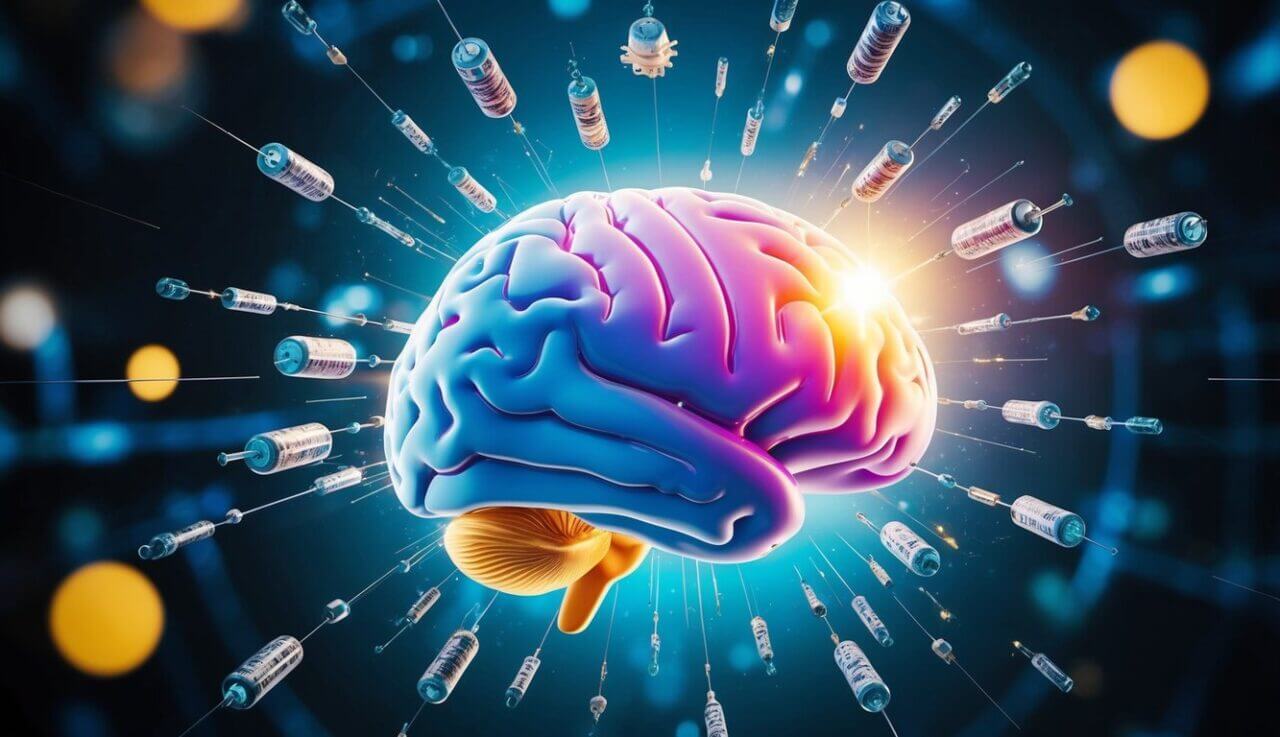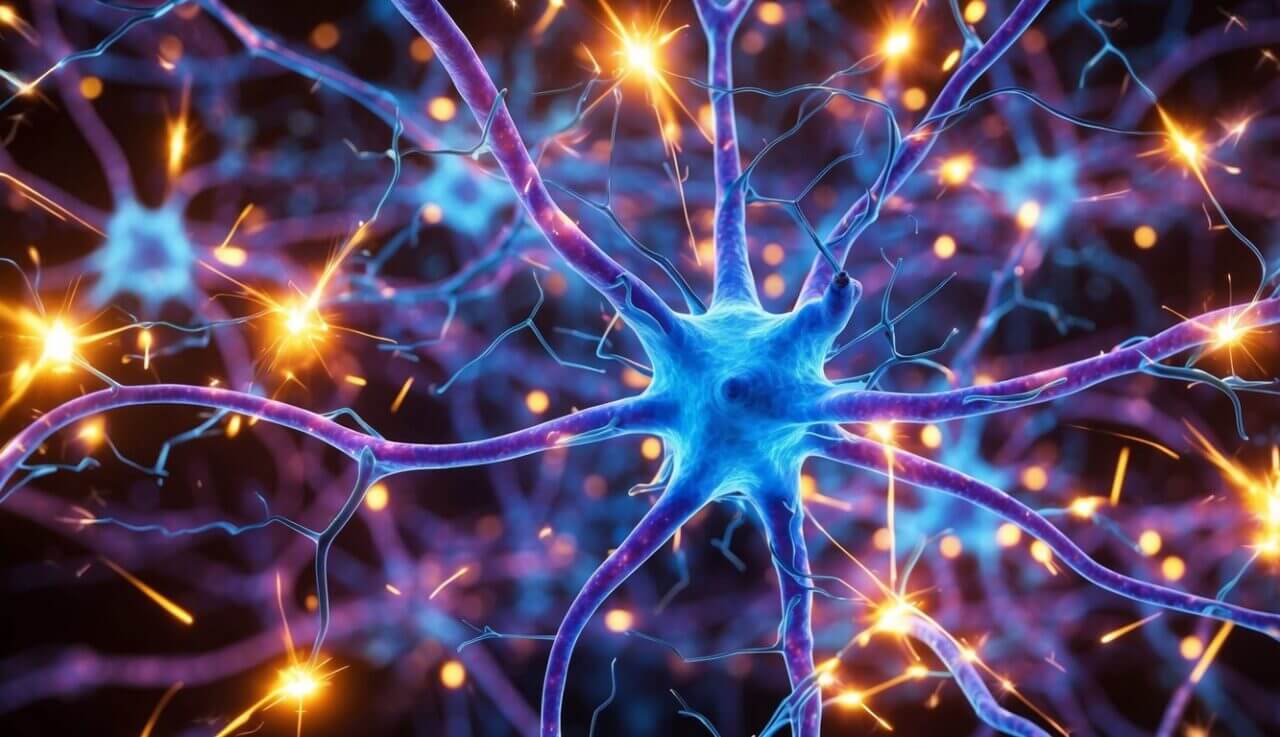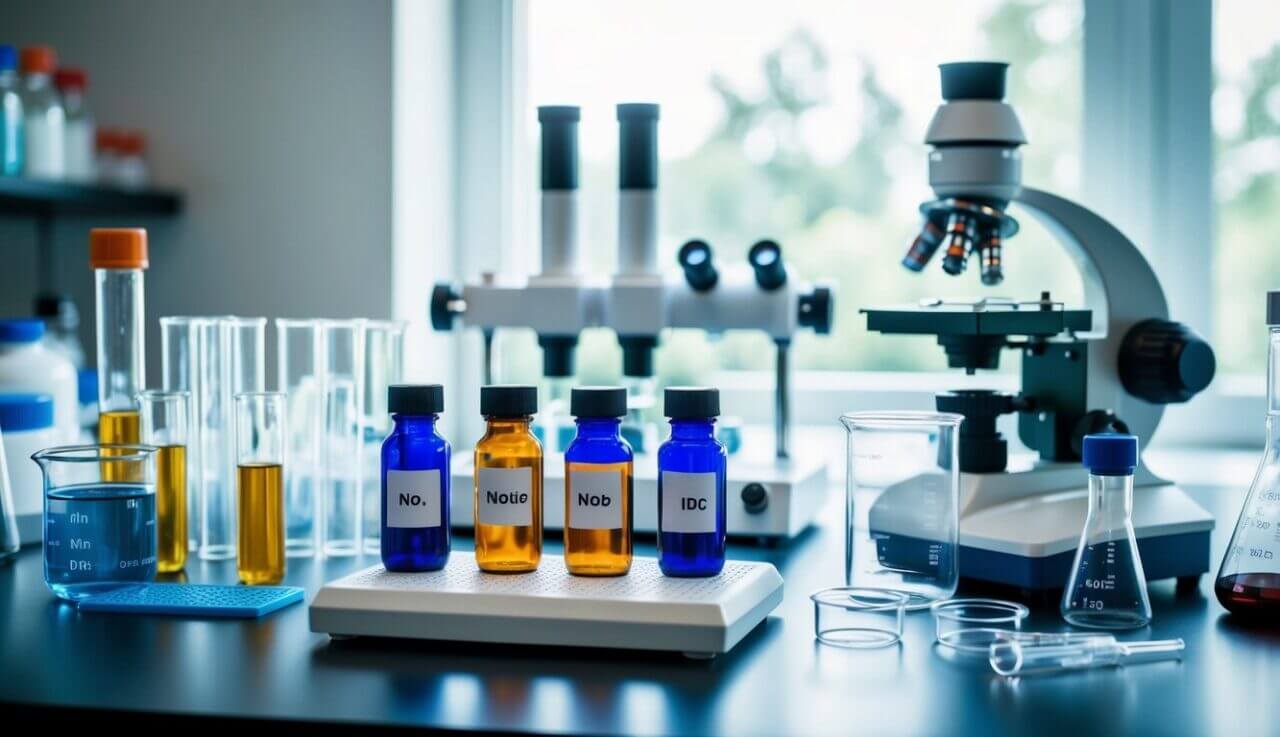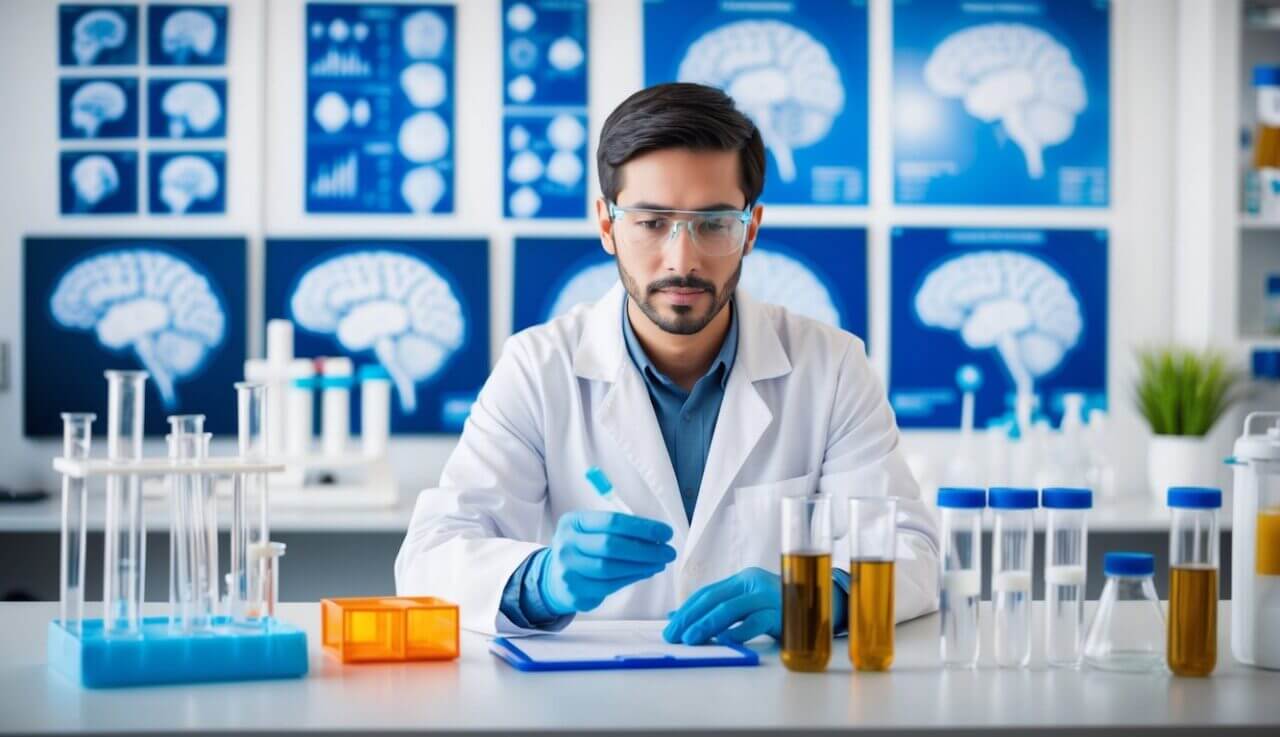Can Nootropics Heal the Brain? Discover Their Potential Benefits
Nootropics, often called smart drugs, have gained popularity for their potential benefits in improving cognitive functions. These compounds are not just limited to enhancing mental performance; they also offer exciting possibilities for brain healing.
While nootropics cannot completely heal the brain, they can support cognitive repair and overall brain health through neuroplasticity and neurogenesis.
Imagine a world where you can help protect your cognitive health while boosting brain function. Nootropics might just be the key to mitigating the effects of aging and brain damage. These natural or synthetic compounds offer promising avenues for those striving to improve their mental clarity and vitality.
Research is ongoing, and emerging studies indicate that specific nootropics may aid brain repair. This presents an incredible opportunity for anyone looking to maintain a sharp mind as they age or recover from cognitive challenges.
The realm of cognitive enhancement is filled with possibilities waiting to be explored, offering hope and excitement for those committed to better brain health.
Key Takeaways
- Nootropics support brain health through neuroplasticity.
- Aging effects may be mitigated with specific nootropics.
- Safe use is crucial for effective brain repair.
How Brain Damage And Aging Affect Cognitive Health

Brain health is a topic that impacts everyone as it influences both longevity and quality of life. Understanding the factors that contribute to cognitive changes is crucial for maintaining mental sharpness as you age.
Common Causes Of Brain Damage
Brain damage can result from numerous sources and impacts various cognitive functions. Traumatic brain injury from accidents or falls is a prevalent source of harm, often leading to attention issues and cognitive decline. Strokes, interrupting blood flow to the brain, can severely compromise functions like memory and speech.
The use of substances like alcohol and certain drugs may also lead to long-term cognitive impairment. Diseases such as Parkinson’s and Alzheimer’s disease, which are progressive, cause ongoing cognitive decline. While challenging, identifying these causes early can empower you to take control of your brain’s health.
Cognitive Decline And Aging
As you age, cognitive functions can gradually change, altering how you think and remember. Mild cognitive decline is often part of the aging process, but more severe conditions like dementia and Alzheimer’s can be daunting.
Activities that stimulate your mind, such as puzzles or learning new skills, may help mitigate decline. Balancing mental exercises with a nutritious diet rich in brain-friendly nutrients supports effective cognitive performance.
Further, engaging in activities that bring enjoyment and social approval strengthens connectivity in the brain, delaying the progression of age-related cognitive decline. Keep in mind, your attitude and actions today can have a positive impact on your cognition in the long run.
The Science Of Brain Repair: Neuroplasticity And Neurogenesis

Understanding the brain’s remarkable ability to heal through neuroplasticity and neurogenesis offers exciting insights. These processes can enhance learning and memory, improve cognitive flexibility, and bolster overall brain health.
The Brain’s Ability To Heal Itself
Your brain is not static; it constantly adapts and remodels. Neuroplasticity allows your brain to form new connections in response to learning and experience. This adaptability is crucial for memory, recall, and information processing.
In addition to neuroplasticity, neurogenesis—the creation of new neurons—occurs in specific brain areas, such as the hippocampus. This process is linked to improved reasoning and emotional health.
Factors like growth factors and increased blood flow to the brain support these processes. By reducing oxidative stress, you create an optimal environment for brain repair, nurturing both current and new connections. Small lifestyle changes can significantly impact your brain’s ability to regenerate and reorganize.
Supporting Brain Repair With The Right Tools
Incorporating certain habits and nutrients into your lifestyle can support brain repair. Antioxidant-rich foods, such as berries and nuts, combat oxidative stress. These foods promote cognitive health and boost cerebral blood flow, aiding in neuroplasticity and neurogenesis.
Regular physical activity enhances blood flow to the brain and encourages the production of growth factors. Activities like puzzles or learning a new skill can enhance cognitive flexibility and information processing abilities.
These efforts not only aid in brain repair but also contribute to the enjoyment of life, help in achieving superior cognitive performance, and foster freedom from cognitive decline fears.
How Nootropics Can Aid Brain Healing

Using nootropics for brain healing continues to gain interest due to their potential benefits. These substances may support brain health by offering protection, boosting new cell growth, enhancing energy, and improving neurotransmission.
Nootropics For Neuroprotection
Nootropics like piracetam and aniracetam are popular for their neuroprotective properties. By enhancing blood flow to the brain, these substances may help reduce the risk of cognitive decline.
Improved circulation leads to better oxygenation and nutrient delivery, which can protect neurons from damage. Certain nootropic supplements help regulate neurotransmitters such as dopamine and serotonin, contributing to reduced inflammation and oxidative stress.
This protection against harmful processes can be vital for those seeking to maintain optimal brain function, supporting survival and enjoyment of life. The strategic use of synthetic compounds like racetams offers a pathway to supporting brain resilience.
Nootropics For Neurogenesis
Neurogenesis, the creation of new neurons, is a promising area where nootropics play a role. Substances like oxiracetam and pramiracetam are believed to stimulate growth in specific brain regions associated with learning and memory. This process can elevate short-term memory capabilities and sharpen focus.
By fostering an environment conducive to neural growth, these cognitive enhancers can potentially offer liberation from cognitive impairments. An improved neural network translates into a better quality of life and a sense of superiority in cognitive tasks. Supporting neurogenesis aligns with the human drive for freedom from fear and supports survival.
Cognitive Restoration Via Energy Support
Energy is crucial for cognitive restoration, and certain nootropics work by enhancing cellular energy production in the brain. Supplements like acetylcholine precursors boost metabolic activity, sometimes leading to increased alertness and mental clarity.
Enhanced energy levels can aid cognitive restoration and support focus, resonating with your desire to fully enjoy life’s experiences.
These nootropics may improve the efficiency of mitochondria in brain cells, addressing fatigue and enhancing overall brain function. An active, energetic brain supports not only cognitive tasks but also your enjoyment of life and social interactions. This increased vitality can be a compelling motive for you to incorporate these aids.
Enhancing Neurotransmission
Enhancing neurotransmission is a key area where many nootropics excel. Compounds targeting acetylcholine can improve attention spans and information processing speed, essential for complex cognitive tasks. By optimizing neurotransmitter release, these smart drugs heighten alertness and short-term memory retention.
Nootropics like these may support neurotransmitter balance, alleviating anxiety and boosting mood. In turn, a more balanced mood can lead to better social interactions and comfort in living conditions, providing you with a sense of freedom and improved mental states. This focus on emotional well-being deepens your connection to loved ones and supports overall cognitive performance.
Studies & Evidence Supporting Nootropics In Brain Repair

Enter the exciting world of nootropics, where emerging studies suggest they may play a role in healing and repairing the brain. From groundbreaking research to personal triumphs, there’s a lot to discover about these cognitive enhancers.
Breakthrough Research
Recent studies have sparked interest by suggesting certain nootropics might aid in brain repair. Research highlights include:
- Synaptic Plasticity: Some nootropics enhance the brain’s ability to form new connections, potentially aiding recovery from injuries.
- Neurogenesis Support: Compounds like Lion’s Mane mushroom are linked to promoting the growth of new neurons.
- Cognitive Function Improvement: Clinical tests on compounds such as Piracetam show promise in supporting brain recovery post-trauma.
Each study adds another piece to the puzzle, offering hope for enhanced mental performance and well-being.
Real-Life Success Stories
Turning to real experiences, many individuals report noticeable brain recovery and cognitive enhancements due to nootropics.
Jenna’s Story: After a mild traumatic brain injury, Jenna found that a regimen including Bacopa Monnieri improved her memory and focus.
Mark’s Journey: Diagnosed with age-related cognitive decline, Mark incorporated Rhodiola Rosea, experiencing a boost in mental clarity and overall mood.
These success stories highlight nootropics’ potential to enhance the brain’s natural healing processes, fostering a life enriched with clarity and capability.
Safe Use Of Nootropics For Brain Repair

Harnessing the brain-enhancing capabilities of nootropics offers exciting possibilities for repair and improved cognitive function. Being aware of key considerations and potential risks can help you make informed choices.
Key Considerations For Starting Nootropics
Exploring nootropics starts with a focus on safety and efficacy. Prescription nootropics such as Ritalin, Adderall, and Modafinil (Provigil) have shown promise in cases of attention deficit or narcolepsy, sharpening focus and alertness.
Consulting your healthcare provider is crucial, especially if you’re dealing with conditions like schizophrenia or autism. They can tailor advice to fit your unique needs.
Always follow the recommended dosages to reduce risks. Consider starting with lower doses, observing how your body responds, and gradually adjusting. Diet, hydration, and a balanced lifestyle enhance the effects of nootropics, supporting the brain’s natural healing processes.
Potential Risks And Side Effects
While nootropics hold promise, they’re not without risks. Some users experience side effects such as nausea, diarrhea, or dizziness. Awareness of these reactions can guide you in adjusting your approach for safety.
Prescription drugs like methylphenidate carry potential risks for dependency, particularly if used improperly. Remain vigilant about dosage adherence to prevent adverse effects.
Evaluating the compatibilities of nootropics with existing medications is crucial. This ensures they complement rather than conflict with your health plan. Prioritize safety by maintaining open communication with your healthcare provider. Balancing benefits with risks is vital to enjoying life-enhancing outcomes.
Practical Recommendations For Using Nootropics
Enhancing brain health with nootropics involves thoughtful strategies and supportive lifestyle changes. By combining the right supplements and practices, you can optimize mental performance while addressing factors like anxiety and fatigue.
Building A Nootropic Brain Recovery Stack
Creating an effective nootropic stack involves including ingredients that target specific brain functions. Start with L-theanine and caffeine for improved focus and reduced mental fatigue. For memory enhancement, consider Bacopa Monnieri and Ginkgo Biloba. To boost energy production and overall cognitive function, CDP-choline or Citicoline can be beneficial.
Include adaptogens like Rhodiola and Ashwagandha to help combat stress and enhance mood. You can also add creatine to support cellular energy and promote recovery. Experiment with combinations to best match your cognitive needs.
Supporting Nootropics With Lifestyle Changes
Dietary habits and daily practices can greatly impact the effectiveness of nootropics. Maintain a balanced diet, rich in antioxidants and omega-3 fatty acids, to support brain health. Incorporate green tea and ginseng, known for their brain-boosting properties.
Regular physical activity enhances blood flow and promotes neurogenesis. Manage stress through mindfulness or yoga to reduce anxiety and depression. Prioritize quality sleep to optimize reaction time and minimize brain fog.
Staying hydrated and limiting alcohol can further enhance cognitive wellness. Embrace these lifestyle changes to make the most of your nootropic stack and support brain recovery.
Sharpen Your Mind: What’s Next
Exploring the potential of nootropics provides an exciting opportunity to enhance cognitive performance. These supplements might support your life-extension goals and help you enjoy life more fully, potentially boosting energy and mental clarity.
Integrating nootropics could lead to enjoying better food and beverages by enhancing taste perception and enjoyment. Such experiences are tied to your overall cognitive wellness.
Adopting nootropics may contribute to freedom from fear and anxiety, promoting a sense of safety in your mind. This shift enhances your feeling of mental calmness and resilience.
For those interested in sexual companionship, improved cognitive function may enhance your confidence and ability to engage more meaningfully in relationships.
Nootropics might support comfort and ease in daily living. By potentially improving focus and memory, everyday tasks could become less daunting and more manageable.
Achieving superior cognitive performance aligns with your desire to excel and succeed. Nootropics might provide that competitive edge, helping you to remain sharp and proactive.
You might find that enhanced cognitive function allows you to better care for loved ones. With improved clarity and focus, supporting their needs could become more manageable and rewarding.
Finally, using nootropics could lead to increased social interactions by improving your mood and cognition. Social approval becomes easier as you feel more confident and capable in your interactions.


